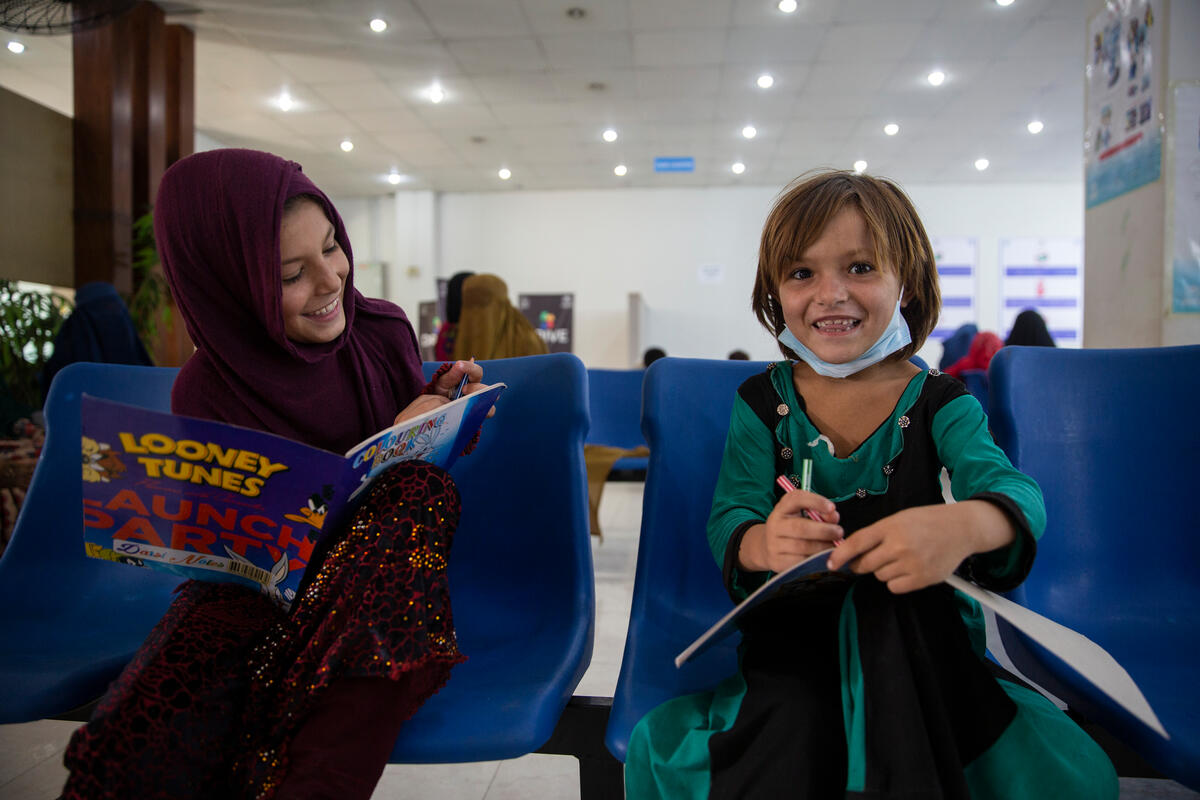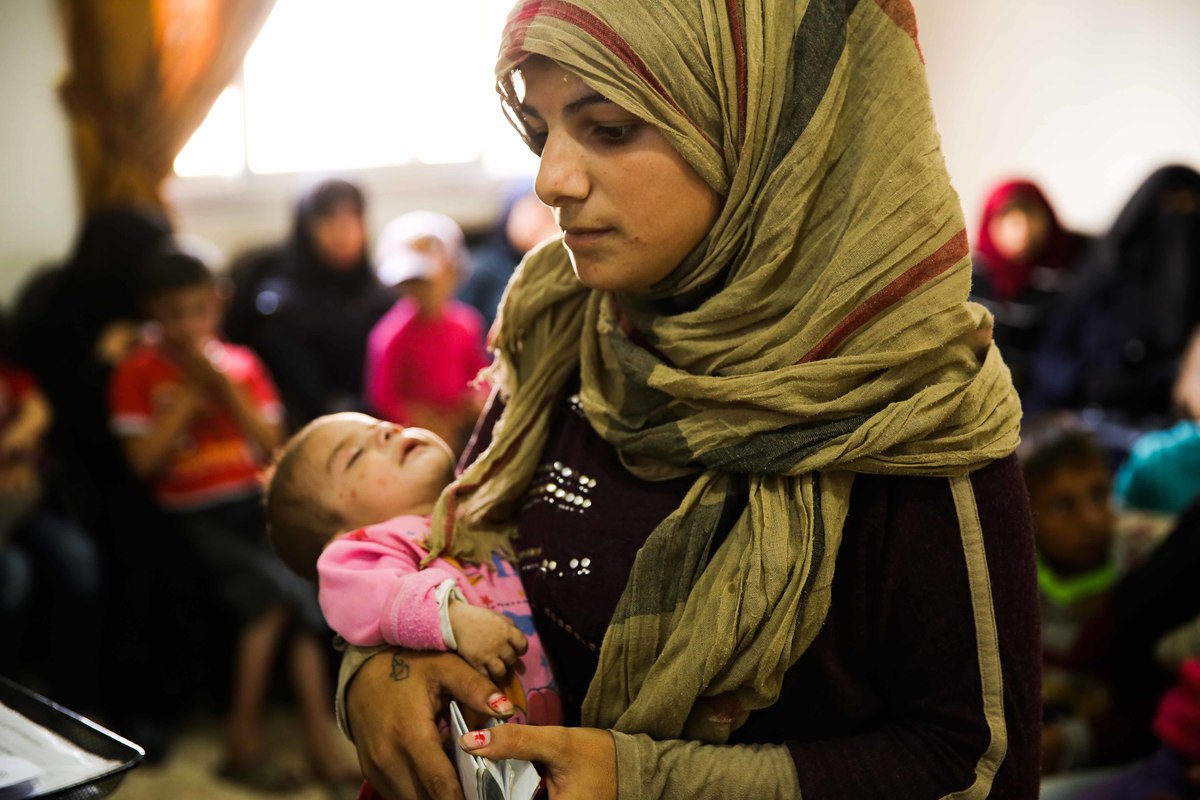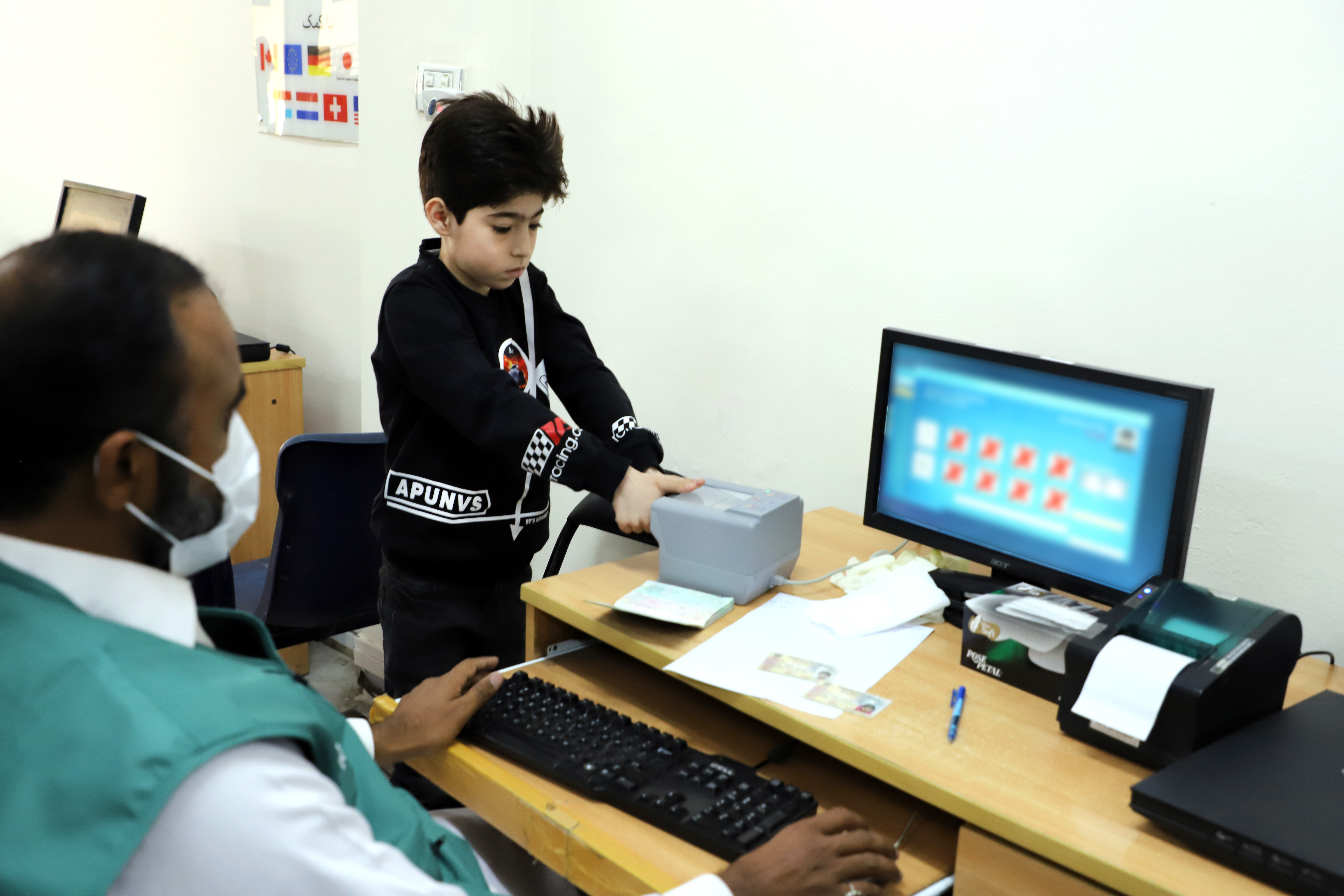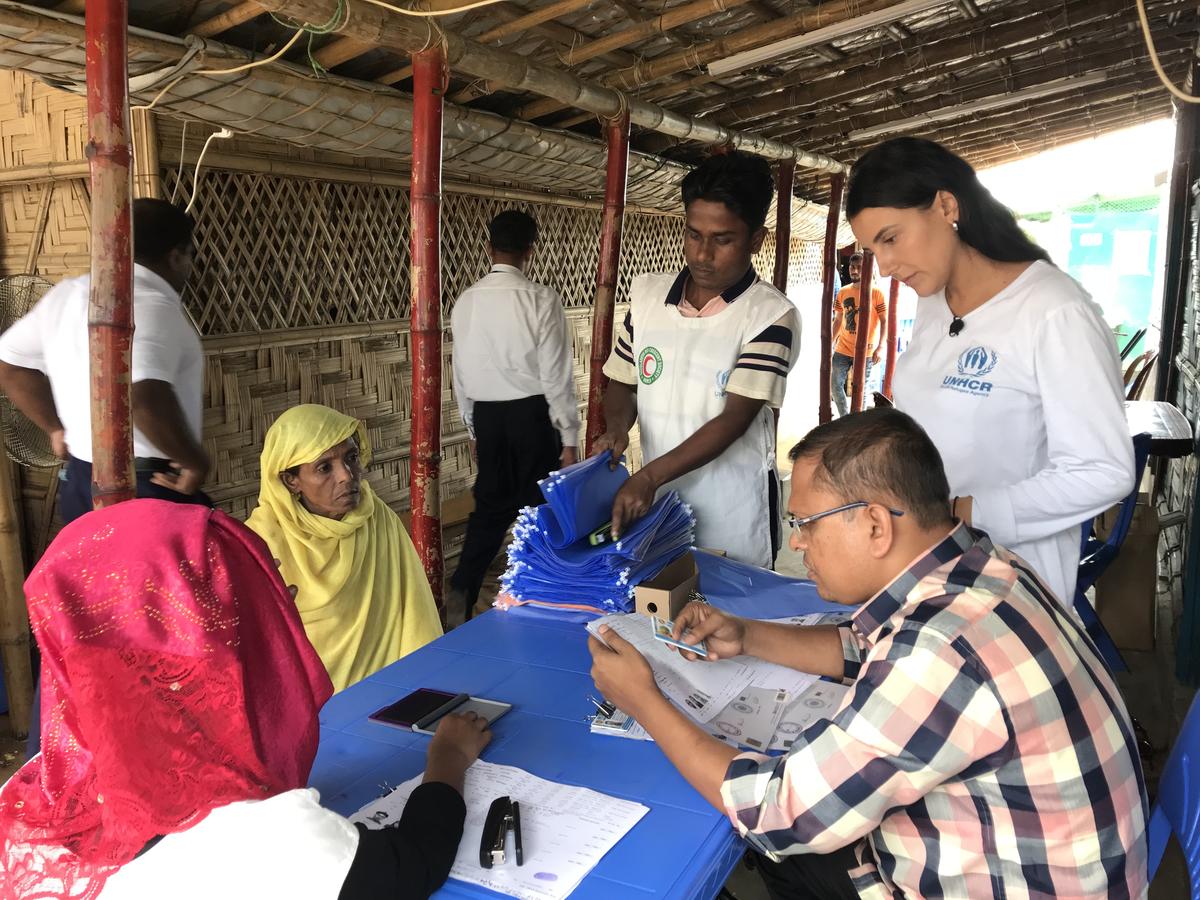UNHCR registers thousands of refugees from Central African Republic
UNHCR registers thousands of refugees from Central African Republic

ABECHE, Chad, February 12 (UNHCR) - A small UNHCR team has been helping the authorities in south-eastern Chad to register thousands of refugees from neighbouring Central African Republic (CAR) and to assess their needs. The refugee agency also distributed aid.
Some 6,000 civilians, mostly women and children from the Rounga and Sara tribes, have fled to Chad since December to escape attacks by rebel groups and fighting between the rebels and CAR government forces. Most are now stranded in and around the village of Daha, just one kilometre from the Chad-CAR border.
A convoy organized by UNHCR and other humanitarian aid agencies, including the World Food Programme (WFP) and the UN Children's Fund (UNICEF), left for Daha from the town of Abéché late last week and arrived on Monday.
On Tuesday, the four UNHCR members of the mission began to register the refugees and to distribute assistance, including cooking utensils and shelter material, including plastic sheeting, mats, mosquito nets and blankets, which will protect them from the wind and cold at might. Most of the refugees have been sleeping out in the open. WFP handed out food rations for three weeks.
The team has also been assessing the immediate needs of the refugees. These included the provision of a steady supply of potable water, the construction of proper latrines and the immunization of children under the age of five against measles and polio. Five refugee children have died of unknown causes, while two women have died while giving birth.
A UNHCR emergency team from Geneva is expected to arrive in Daha on Friday to continue interviewing the refugees and organizing relief assistance. However, the remoteness of Daha, which is situated almost 1,000 kilometres south of Abéché, remains a major logistical constraint.
The UN refugee agency is awaiting a decision from the Chadian government on proposals to move the new arrivals to a safer location with easier access for humanitarian agencies. The likeliest site for a new camp is in the area of Am Timan, some 280 km north of Daha.
Many of the refugees interviewed by UNHCR were still traumatized by their experience and not ready to go back. Hawoua said she had taken one of her children to visit her brother in Ngarba village, when the rebels arrived and started looting houses. "We fled the same night, but we were separated [from my brother]. Now I'm all alone here with my child," said the 20-year-old, adding that she was worried about her husband and two other children back in CAR.
Alime, another refugee from the Ngarba, crossed into Chad about two weeks ago with three daughters and the clothes on her back. "The rebels killed five of my family members. Our village is left in ashes, we can't go back," she said.
North-eastern CAR has been unstable for several years and there have been several waves of refugees crossing into Chad over the past six years. The UN refugee helps some 52,000 of them in five camps in southern Chad. UNHCR also runs 12 camps in eastern Chad that house quarter-of-a-million refugees from Sudan's Darfur region. There are also more than 160,000 internally displaced Chadians.
By Victorien Ndakass in Daha and Annette Rehrl in Abéché, Chad








